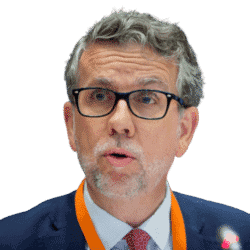
As Europe faces into what appears to be a second wave of the pandemic, concern is mounting about the evolution and impact of the disease, with rising infections, hospitalisations and deaths. There is also a growing focus on the repercussions for the economy, the labour market and the way we shall live and work—or not.
How we respond to these extraordinary times will shape the future of our societies for decades. Understanding the lived experiences of citizens is critical, to develop the most relevant and effective policies to tackle the fallout from the pandemic.
Eurofound’s ‘Living, working and Covid-19’ survey does just that. Drawing on experiences from the initial outbreak in the spring through to the summer, the results show, as might have been expected, an improvement as lockdown was lifted across the European Union and the economy gradually reopened. There was an upturn in optimism, trust increased at the EU and national levels, feelings of job insecurity declined and the self-employed reported better prospects.
Less work
Despite these improvements, however, reduced working time—and suspension of contracts—continued. This is of concern, with one in three reporting reduced working time in July (albeit down from half in April). Yet it arguably validates the crucial role short-time-working schemes are playing in mitigating the impact of the pandemic on labour markets.
This buffer has not however been able to stop the increase in unemployment. This has been comparatively high in some groups, such as the self-employed, and in some countries with less robust labour markets strongly hit by the pandemic, such as Spain.
Social shocks tend to hit unemployed people harder anyway, especially in crises such as this. They report lower resilience and more difficulty in making ends meet (twice as hard as for those in employment), while two out of five report feeling left out of society.
Others experiencing comparative disadvantage, such as young people and women generally, are among those most adversely affected by the socio-economic implications of Covid-19. There are also less obvious groups, such as the self-employed and middle-aged cohort (34 to 49)—traditionally perceived as comparatively better off—who report concerns, not only about employment but future job security.
More telework
For those remaining in employment, teleworking continues to be the most relevant change. Unimaginable on this scale just a decade ago, teleworking seems to have been of benefit overall, in ensuring business continuity and allowing workers to adjust and remain active. As the economy reopened partially in July, half of Eurofound’s respondents were still reporting teleworking at least occasionally, with one third continuing to work exclusively from home. Moreover, with three out of four employees indicating that they would like to telework in the future, at least occasionally—the preferred option a mix between remote working and workplace presence—employment relations are likely to be transformed.
Policy discussions have already started at national and EU levels, on the part of public authorities and within social dialogue, to address the opportunities and challenges the situation offers. Company practices will need to adapt and organisations will need to learn new ways of operating.
Anyone doubting the importance of telework in our new reality should consider the fact that around 40 per cent of paid hours worked by employees have been performed from home during the pandemic. Telework is no longer just a workplace issue: it is an important macro-economic consideration, with potentially large impacts on regional convergence, the urban-rural relationship and Europe’s place in the global economy. It opens up huge opportunities for society and the economy at large—for example, the (re-)development of rural areas is now a real possibility as places to live and work, with the appropriate infrastructure.
Yet not all jobs are ‘teleworkable’ and issues remain. Fewer than half of employees teleworking report having received the required equipment from their employer. Many are working in their free time, potentially fading further the blurring boundaries between work and family life. And while support from management and colleagues for them remains, they do report feeling more isolated, their work less useful—important aspects of job quality.
Trust bellwether
The rapid changes under way in the workplace, economy and society can also be gauged in levels of institutional trust. This is a bellwether of the functioning of our democracies and the health of our societies and some changes have been evident between the previous trawl of opinion in April and July.
Perhaps unsurprisingly, those who have suffered the impact of the crisis but have also benefited from swift policy reaction and financial support report higher trust. This speaks to the importance of establishing the right safety-nets for those in situations of vulnerability, to ensure they are not left behind.
Trust in the EU seems to have largely recovered, having plummeted in April—particularly in the countries hit first by the outbreak, such as France and Italy. This may reflect a recognition of how solidarity to an extent trumped the initial tensions at European level, with the implementation of the SURE initiative to support employment and the longer-term recovery plan, Next Generation EU.
This positive trend is not, however, uniform across member states and trust in national governments meanwhile declined in most countries. In this fragile world citizens’ trust directly reflects their perception of solidarity and fairness in a union which seeks to ‘leave no one behind’. As the European Commission president, Ursula von der Leyen, said in her State of the Union address, ‘we showed what is possible when we trust each other and trust our European institutions …. to not only repair and recover for the here and now, but to shape a better way of living for the world of tomorrow’.
Juan Menéndez-Valdés is the director of Eurofound, the European Foundation for the Improvement of Living and Working Conditions. Prior to assuming the position in 2010, he was the head of employment, immigration, education and training policies at the Spanish Confederation of Employers’ Organisation (CEOE) and programme manager for guidance and training at the Spanish National Institute for Employment (INEM).